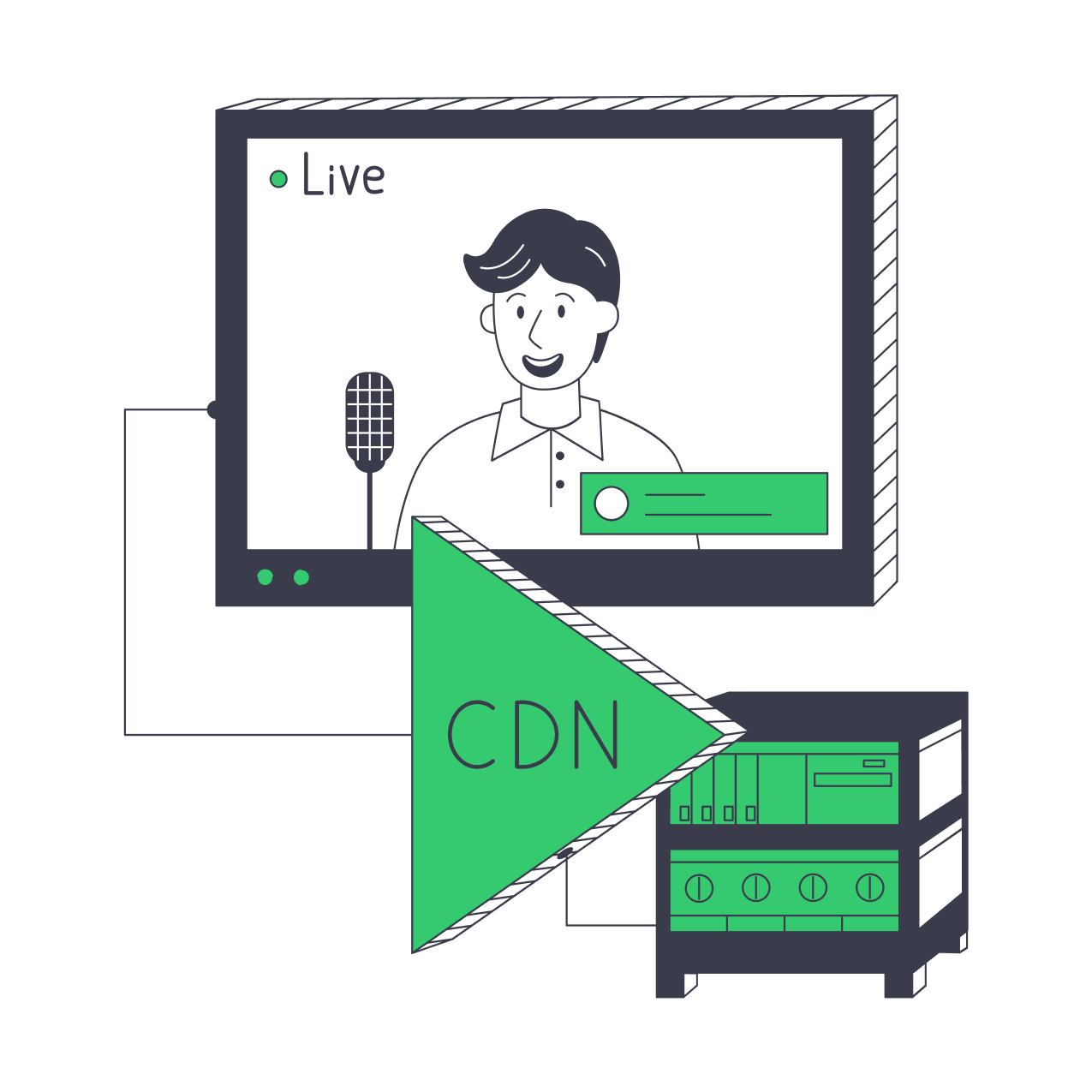Blog

CDN for streaming services
We talked about Content Delivery Network (CDN) technology in one of the previous articles. In a nutshell, CDN accelerates and optimizes content delivery to end users using additional servers located in different geographic regions. The data hosted there is synchronized with the client's central server, so the CDN takes the load off the server and delivers information to the user from the closest data center. In this case, the response time doesn't exceed a fraction of a second. Media content is literally getting closer to people.
Advantages of the technology
CDN has become widespread largely due to the development of streaming services: the very concept of streaming involves the instantaneous transmission of data to numerous people from different cities and countries. And even the slightest hiccups of your favorite TV show or the latest video of a popular blogger cause viewers' annoyance. A lag of even a fraction of a second is also critical for modern online games. In such projects, you can't do without the CDS.
Let's see how exactly CDN helps to improve the quality of the streaming service?
- Speeds up download time. Due to the fact that the distance between consumers and CDN nodes is reduced to a minimum, the response time rarely exceeds 0.01 seconds.
- Allows you to broadcast high-resolution video. CDN evenly distributes date between data centers and transfers "heavy" content without stuttering or lags.
- Facilitates access to content in remote regions. No matter where the client project is hosted, the network itself distributes data between data centers all around the world, so viewers from South America, for example, will have no problem playing a video on a platform based in Germany.
- Scales up easily. CDN structure features make it possible to flexibly configure and customize the set of options to meet business objectives. Providers charge for the volume of data transmitted, which ensures that the cost of the service is proportional to the scale of the IT project. In this case, when subscribing to CDN service for a streaming project, business owners do not need to invest in equipment, hiring and training new specialists because everything is provided by the Content Delivery Network provider.
- Protects the broadcast from crashing. CDN implies having multiple points of presence around the world. Therefore, if there is a spike in activity or a crash at one data center, the system will optimize the stream itself and continue to distribute flows of video files or music without interruption.
Melbicom CDN for streaming
Melbicom has its own CDN in data centers located on several continents in 36 countries. The solution is tailor-made for the needs of streaming services:
- Full support for HTTP / 2. The HTTP/2 procedure increases the speed of opening websites by allowing multiple requests to be sent through a single connection. Each request can be prioritized, allowing key elements to be downloaded first to improve the user experience.
- TLS 1.3. It is the latest version of the transport layer protocol, which is responsible for security and integrity of data. It simplifies the "handshake" process between Origin and the client, and helps to quickly restore the session in case of re-connection or connectivity problems.
- Supports brotli-compression. This compression method reduces the volume of transmitted traffic up to 3.5 times! The algorithm compresses media content and reduces bandwidth requirements of infrastructure.
- Caching static content and video files. All images, music, or video content transmitted through the Content Delivery Network is cached on linked data centers, which significantly increases the speed of response to requests.
- Custom routing policies. The control panel in your client area provides flexible configuration of the rules by which your data will be routed within the CDN for streaming services.
- Hotlink protection. Hotlink protection prevents other websites from accessing your data to download images, music, or videos. This way, the CDN resources won't be used by anyone other than your site. Protection can be based on a unique token key or IP address.
- Video delivery (HLS, MPEG-DASH). The HLS and MPEG-DASH streaming protocols were designed specifically for video streaming. Their algorithms request and download slices of video files and then collects them from the client so that the user sees a seamless stream. A video player downloads the first index file and then the following fragments of content as you watch.
Summing up
CDN is the technology that gave us the opportunity to play modern online games, watch live broadcasts without lags. It has made it possible to massively broadcast huge data arrays. In addition, CDN significantly increases fault tolerance during peak loads.
For IT projects related to distribution of video content and "heavy" files to a wide audience, a Content Delivery Network system is essential. Melbicom offers CDN services that will not only improve user experience, but also optimize traffic and computing resources through options tailored for streaming services.